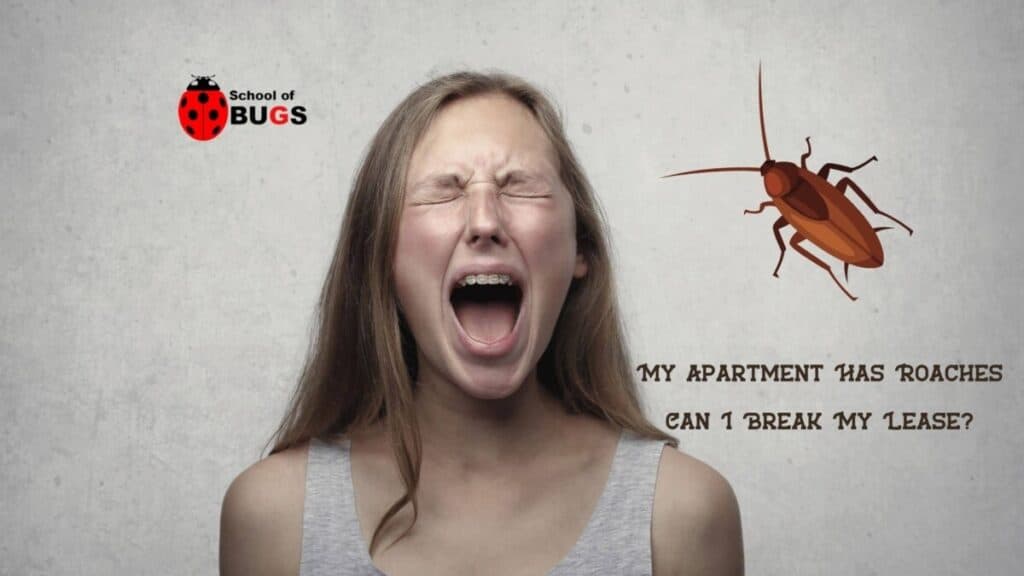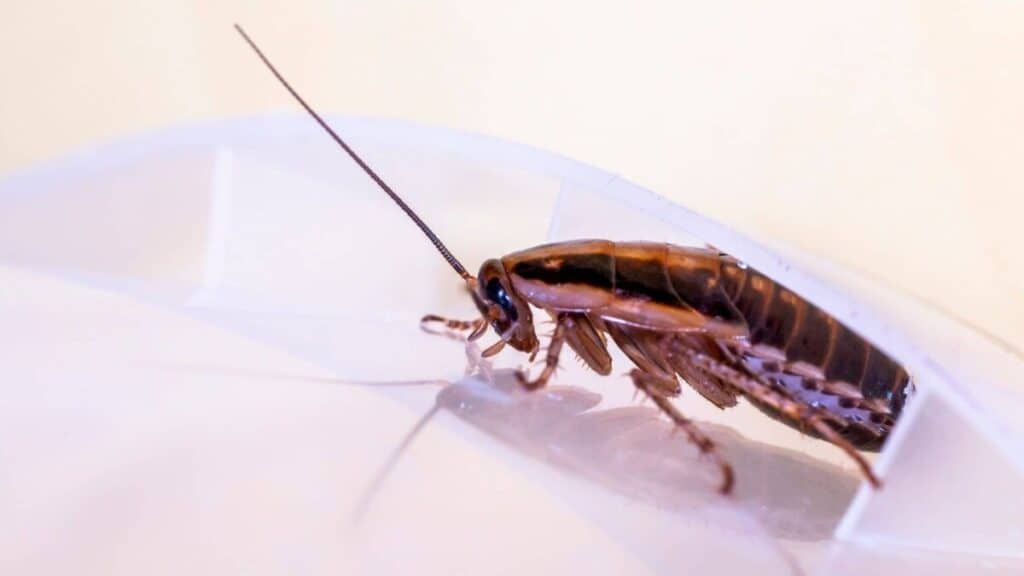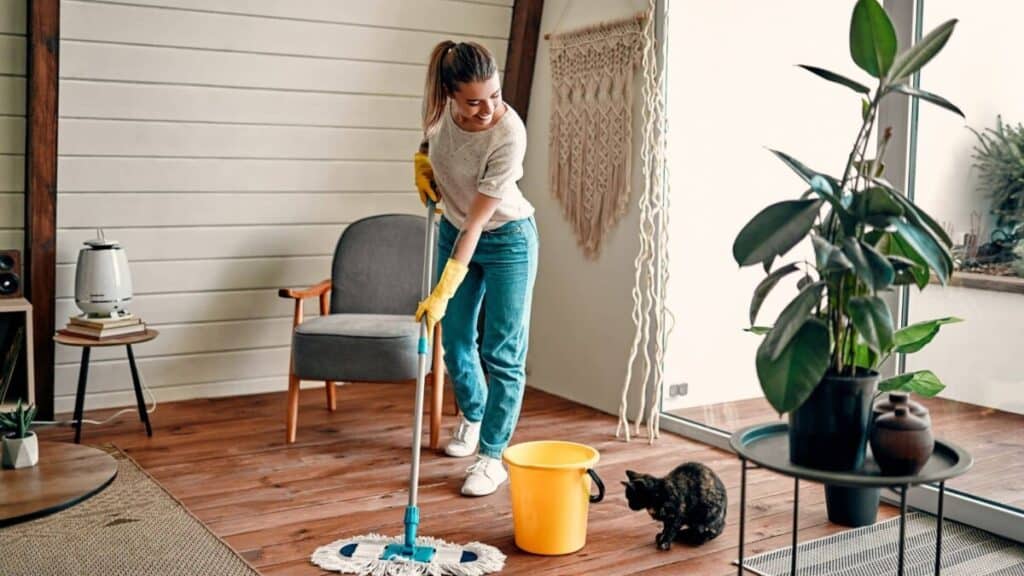
Nothing is more disgusting and potentially embarrassing (if you’re ever having company over) than having a roach infestation in your apartment dwelling.
There are a lot of problems that can go on in a leased home that can create friction between the landlord and their tenant, with roaches being one of them.
If you research the topic, you will find that LegalAdvice.com claims there exists what is called a “warranty of habitability” between the landlord and the tenant.
While every state is a little different, there is little doubt that a landlord can do nothing about a cockroach infestation, especially if you aren’t at fault.
What Options Does a Tenant Have?

The first thing that you always want to do, particularly if you are looking for validation in terms of breaking the lease, is establish a paper trail of evidence as well as establish a dialogue between yourself and the landlord about the situation.
File an Initial Complaint
You want to do your best to place the landlord in a position where they cannot claim that you never spoke to them on the matter.
You can do that in one of two ways. Make sure that when you initially approach the landlord, you have a witness with you.
Don’t bother with a recording device, unless your state clearly allows for the recording of conversations with only one party awareness.
A witness is sufficient. If it comes down to it, they can stand by your claim under oath.

You can also submit a written notice to your landlord thoroughly explaining the severity of the problem. This is really important if the roach infestation is not because of anything that you did.
Make a copy of the letter, record yourself dropping it off, and file the copy in a safe place.
In the letter, address the problem and ask for a qualified exterminator. The most important thing that you can do at this point is to allow the landlord enough time to do something about it.
If you bail on the lease two days after you submitted the letter, you’re throwing yourself under the bus.
Only after the landlord does nothing or only vaguely attempts to correct the problem can you proceed to the next step in the process.
Send a Second Letter

This might be the first letter, depending on how you confronted your landlord in the beginning. The second letter needs to be far more descriptive of the problem.
Feel free to take pictures and submit them as well.
Anything that goes into the envelope should be copied and you should record yourself delivering or dropping off the letter.
Make sure that you write down the current date and the current time in which you both wrote and submitted the letter.
Speak to an Attorney

If after the second letter, nothing has been resolved, it’s time to seek out the counsel of an attorney. This is where all of your meticulous copying, recording, and picture-taking become invaluable.
When it comes to legal matters, it’s always very important to establish evidence of wrongdoing.
In this case, it’s the wrongdoing of the landlord that is the problem and you cannot approach an attorney without having anything at hand to prove your allegations.
You will want to find out what the laws in your state say about terminating your lease early and with cause.
Make sure that the attorney’s office you call handles landlord and tenant matters and it shouldn’t be difficult to acquire a free consultation.
Even if it’s only a free, 30-minute consultation, most attorneys will let the time limit exceed that amount without charging you and, unless your story is absolutely fantastic and phenomenal, it shouldn’t exceed 30-minutes anyway.
Issues Which Can Damage Your Claim
There are a few things that you should be aware of when it comes to a roach infestation dispute with yourself and your landlord.
Thoroughly Check a New Apartment

The first thing that you need to understand, is that if you march into a new apartment dwelling knowing that there is a current roach infestation, you will undermine your own credibility down the road.
When you are looking into new apartments, you need to do a thorough check of the space and observe—to the best of your ability, the apartments that are adjacent to it.
Roaches love two things: water and food.
That means that you need to check the places inside a new apartment where food and water are common.
Check inside all of the cabinets, underneath the sinks, water heater, washing machine area (if applicable), showers, and bathtubs.
Especially look in all of the dark corners and hidden areas for what is called an Ootheca. An Ootheca is what the female roach lays.

It is a hardened sack that can hold dozens of eggs. It will look like a dark to light brown oval that is about the size of a black-eyed pea.
Sometimes, the surface of the brown Ootheca will have small lines traveling horizontally across its width. If you see even one of these, there is a potential infestation.
At the very least, it indicates that a female recently laid it.
Maintain Your Apartment
Maintaining your apartment is far more important than you realize. In the case of tenant versus landlord, it will undermine your case if you have a leak under your sink that you haven’t said anything about in weeks.
Roaches are attracted to the dark recesses underneath sinks, especially when there is water present. Any time that there is a problem such as that, you need to notify your landlord immediately and have it fixed.
It will even undermine your position if the roaches are clearly coming from next door.
Always maintain a clean apartment. Organize your dried goods and keep all of them closed and sealed. Keep the insides of your cabinets dry and clean.

If the seals and/or weather strips are worn out or gone, address it with your landlord immediately, preferably before you sign a lease.
Sweep and mop your floors routinely, avoid clutter, and take your garbage out routinely as well.
Do your best to purchase garbage bags and garbage cans that are deodorizing, to eliminate the smell of garbage as an attractant for roaches.
So long as you do those things, a landlord will be hard-pressed to place the blame on you, the tenant, rather than their own lack of willingness to help you solve the problem.
Always Present Yourself Appropriately and Respectfully

The last thing that you want to do is be disrespectful to the landlord. It’s understandable if they are behind on helping you fix the problem.
However, there is a difference between an inept landlord and one that is under a high level of strain.
Remember, you aren’t their only tenant and odds are good that they have plenty of tenants who complain about anything and everything under the sun, the majority of which is probably their fault.
Be kind and respectful and always remember that you catch more flies with honey than you ever will with acid.
If your landlord is simply doing nothing about it, don’t take the fight to them. Respectfully part ways and contact an attorney as soon as it is appropriate to do so.
Don’t burn bridges when you can come back and cross them with a lawyer at your back.
Do Your Homework and Keep Everything
The whole of your argument for breaking the lease will revolve around several things:
- The state that you live in
- Your landlord
- The terms of your lease
- The condition of the apartment when you moved in
- You
- The evidence that you collect
There are certain things that you can control. The things that you cannot control are the things that you need to get over and resolve yourself that you cannot stress over it.
Why stress over something that is entirely out of your hands?

The things that you can control are the evidence that you collect and how efficient you are at gathering it, dating it, organizing it, and maintaining copies of it.
The condition of your apartment is also within your power. Keep it clean and organized at all times.
The terms of your lease are under your control as well. Read it thoroughly. Anything that you don’t understand needs to be researched. Ask questions and never be afraid to walk away without signing it.
How you act and how respectful you are throughout the entire affair will pay enormous dividends down the road, which is why it is always so important to maintain your composure no matter how aggravated you are in the situation.
Final Thoughts
As a preventative measure, be sure to check your state laws before you move into an apartment and sign a lease.
Most states are not going to allow landlords to run ram shod over their tenants and force them to live and pay for a roach-infested mess.
However, knowledge is power and the more you know, the better your position will be if anything ever goes wrong, including a suddenly roach-infested apartment dwelling.
Alright, that’s it for this article, here are a few hand-selected articles that you might also find interesting reads:
11 Tips to Prevent American CockroachesHow To Get Rid Of CockRoaches FOREVER – YES SERIOUSLY!!
I Saw One Cockroach, Should I Be Worried?
Recent Posts
Tiny Black Bugs in Bathroom NO WINGS: What They Are and What to Do!
Finding tiny black bugs in your bathroom can be uncomfortable, to say the least. Especially if they are persistent, or they appear in very large numbers, which they often like to do. When it...
Tiny Black Bugs in Plant Soil - What Are They & What To Do About It
A short horror story: You get a new houseplant. You do your best to take care of it. You’ve ensured that it has the right soil, the right amount of sun, it gets enough water. And then one day, you...

